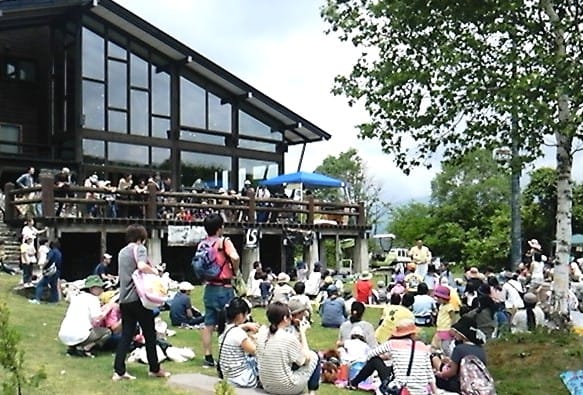Shinzo AbeからのLinkedIn経由の投稿メッセージ:
そもそも、SNSは、今や、いろんな種類のツールがあって、使い分けをせざるを得ないが、そんな中でも、LinkedInは、海外からの友人達が、無理矢理、登録してくれと依頼があり、渋々、登録しているものの、ほとんど、使うことがなく、むしろ、迷惑メール振り分けサービスのボックスに、自動的に保存されてしまうのが、せいぜいである。そん折りに、今朝、Mailboxを確認すると、Read Shinzo Abe’s first post on LinkedIn.という文字が飛び込んできた。どこかで聞き及んだ名前である。取りあえず、参院選のネット選挙解禁ではないが、我が国の総理大臣なのであるから、どんなメッセージを書き込んだのか、一寸チェックしてみることにした。主題は、Japan's New Growth Strategy: Bringing Rapid Reform To the Country という題である。なかなか、どうして、やるではないか?病気療養中にでも、三木谷にでも、説き伏せられたのであろうか?それとも、ブレインに、海外SNS関連に詳しい人物でもいたのであろうか?フェース・ブックといい、LinkedIn でもWordpressでも、何でも宜しいが、積極的に、オリンピック招致だけではなくて、日常から、直接的に、全世界のあらゆる不特定多数のメンバーに向かって、意見表明することは、中国の華僑メディアネットワークに対抗する意味からも、大切なことであろう。この一点だけでも、多少は、政治家の意識も変わりつつあるのかとも、思われるが、それは、私の少し期待しすぎであろうか?変わるところと、変わり得ないところと、色々と織り混ざりながら、一歩一歩、進んで行くのであろうか?前進して行かなければ、我が国は、沈み行くことだけは間違いなさそうである。少なくとも、このメッセージを、英文でも、読んでみようかと思わせるところが、おおいに、宜しいではないか?Krugman教授は、どう読むのであろうか?NYタイムスのコラムに寄稿して貰いたいものである。
ちょっと、長いですが、読んでみて下さい:なかなか、興味深い内容である。
Place Japan on a path to recovery. This is the task that was given to me.
Prolonged deflation has been a major challenge and one that has persistently held Japan back. If the real value of money is higher than the value of goods (the very definition of ‘deflation’) then it is inevitable that corporate investment will be discouraged as a result and household consumption will decrease.
The path ahead is challenging. In many ways, those worst affected by deflation are the younger generation. I worry that the vitality and energy of Japan’s youth may gradually disappear.
My colleagues and I did not become politicians to create such a country; one that dampens the outlook for our young people. Simply put, there can be nothing more important than raising young people who have confidence in a brighter future.
A metaphor for deflation is that your body temperature drops continuously, bit by bit.
There is only one solution; deflation must be rooted out in one fell swoop, through bold and practical new monetary and fiscal policies, implemented simultaneously.
Large-scale central bank policy changes and budgetary measures pursued in quick succession were the first and second “arrows” of Japan’s economic revival strategy. The mood in the country has changed dramatically as a result. My goal was to successfully shake Japan out of the ‘deflationary mindset’ that had become so prevalent.
Another important priority is to tackle the ongoing challenges left by the 3/11 earthquake and tsunami, especially for those living in the affected areas. The tsunami, which occurred just over two years ago, was a ‘once in a millennia’ occurrence. In my role as prime minister I have visited the regions affected by the Tsunami and nuclear accident at least once every month to ensure that positive progress continues to be made towards reconstruction.
As long as people who have lost families and homes continue to suffer and live in unfavourable conditions we will be unable to say that Japan is fully recovered and will be unable to face our friends in the international community, who kindly provided their support. Without Japan’s broader economic revival, the victims themselves will be unable to recover and the regions affected will not be able to regain their vitality.
Japan faces significant structural challenges. During the prolonged recession, we lost 500 billion U.S. dollars in gross national income, equivalent to the disappearance of an economy the size of Norway or Poland. As a result, Japan’s government debt is more than twice its GDP.
Needless to say, growth is of vital importance if we are to reverse this negative trend.
Other structural challenges we face include the declining birth rate and ageing population. Both are difficult to solve. If we do not address these now, however, we will reach a stage where we cannot turn back. Japan must act swiftly before it is too late.
So what do we need to do? Unfortunately there is no panacea, nor ‘magic bullet’, to instantly fix these long term challenges. However, one thing is certain: we can expect a greater impact if we target specific ‘catalysts’ that can create a broader knock-on effect on the economy. More can be gained from decisive and ambitious policies than a patchwork of smaller, modest ones.
These ‘catalysts’ are, in effect, the real goal of Japan’s growth strategy.
I have promoted increased participation by women in the workforce, and in management, for many years. This is a ‘social’ policy, but at the same time it is also a very important piece of the broader growth strategy.
Changing Japan’s corporate culture to be more open and receptive to women is an absolute priority. Japan’s business community has, for too long, been dominated by men with uniform ways of thinking. I am determined to encourage women to break through the glass ceiling, and I will prepare the infrastructure to make that possible.
The next challenge is to ‘open up’ Japan and its markets. Upon becoming prime minister, I was faced with the issue of whether or not to pursue entry to the Trans-Pacific Partnership (TPP) Agreement. Voices of opposition were heard even among those supporting my own party. I did all I could do to change their views and, in the end, made the decision to participate in the negotiations. While some are hesitant about such an endeavor, I have no doubt that increased trade will create a positive chain reaction for the Japanese economy.
Japan is also seeking an economic partnership agreement with the EU, free trade agreements with both China and Korea, as well as trade agreements with participants of the East Asia Summit (the 10 ASEAN countries, China, South Korea, Australia, New Zealand, and India).
I also believe it is important that we step up efforts to attract foreign investment. As part of the new growth strategy we have set an ambitious target of doubling the level of direct investment into Japan by foreign companies.
Since I became prime minister, I have often said that I want to make Japan the most business friendly environment in the world.
One effective tool to achieve this will be the creation of ‘National Strategic Special Zones’ for investment. We have learned from past experience that a ‘bottom-up’ approach may be inadequate and open to the risk of hindrance from excessive regulation, vested interests and lengthy decision making processes. The new special zones will instead take a ‘top-down’ approach. I will personally take the lead in managing these initiatives and making the necessary decisions on deregulation and implementation of reforms.
We will review planning regulations that currently restrict the development of urban areas. In addition, we will tackle regulation to allow leading foreign doctors to work in Japan and to allow international schools to be established more easily. We will also change construction regulations to bring people back to the centre of our cities. If Tokyo’s bid for the 2020 Olympics is successful, it will become a valuable catalyst to boost the recovery of Japan’s economy. To host this global celebration of sport would be a dream come true for the people of Japan.
I want Japan to welcome talented people around the world who offer new expertise and know-how and who can themselves act as positive ‘catalysts’ for change in our economy.
Some may question whether Japan is up to this challenge. My response is that we can no longer afford not to meet these challenges, as they will only become more difficult with time. We must seize the moment.
I hope to act as the ‘drill bit’ that can finally break through the bedrock of Japan’s regulatory regime. Positive changes have already been made - structural reform in the electricity market is one example of this. We, the Abe administration, decided to move forward with the division of generation and transmission of electric power. In doing so, we made a decision to put an end to a market oligopoly that had continued for more than half a century. I expect to see new opportunities to emerge as a result, and increased investment in this market.
Japan’s Upper House election will be held this July. A win by the ruling coalition (consisting of the Liberal Democratic Party and New Komeito Party) will send a clear message of support from the public and will signal that it is time to break the gridlock and build upon the positive momentum made thus far.
In conclusion, it is important to clarifying that these efforts will not only benefit the citizens of Japan.
In the first quarter of 2013, the annualized rate of growth was 4.1 percent. Should the Japanese economy extend this 4.1 percent of growth rate throughout the year, it will be the equivalent of the sudden emergence of an economy larger than Israel’s.
The Japanese economy is not small. Measured in nominal GDP, it is larger than that of Germany and the U.K. combined. If a country like ours were to experience negative growth it would likely be the ultimate recipe for “beggar thy neighbour.”
Japan is a nation that takes responsibility for cultivating a peaceful and stable world order grounded in the rule of law. Japan must be strong to be able to make a strong contribution. To continue to do so, Japan requires economic recovery.
“Abenomics” can lift the country out of deflation and onto a growth path. It represents an opportunity for positive engagement with the world and a “win-win” scenario for both the Japanese and the global economy.













